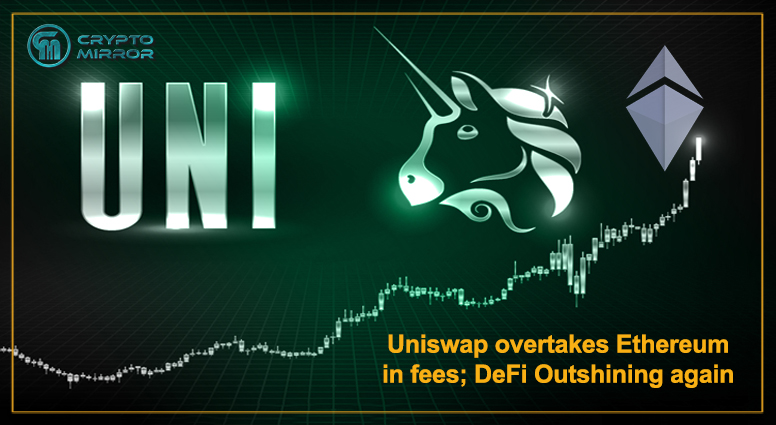Fuzzy future for Crypto tax filing firms
By The Moneycontrol
Retail investors who had just started testing the crypto waters were caught unprepared.
They scrambled to their chartered accountants (CAs) to find a way to calculate gains across multiple transactions involving the purchase and sales of crypto tokens at different prices at the same time across different exchanges.
Unlike stock exchanges where transactions are in INR, on crypto exchanges investors could use Etherium to buy Bitcoins or Bitcoins to buy Matic.
For such transactions, the exchange’s statements only mention ‘-100 Matic’ (when you use Matic to buy another VDA) or ‘+1 Ether’ (when you’ve bought Ether).
The CAs are then tasked with converting each transaction into the INR price of the token at that given point in time on a particular exchange.
Spotting a business opportunity in this situation, a bunch of crypto tax compliance start-ups has emerged over the past few months, namely KoinX, TaxCryp, and Binocs, among others.
Existing tax filing start-ups like Clear have also launched their crypto tax filing platform.
Global crypto tax compliance start-ups like CoinTracker and Bitget too have entered the Indian market.
Most of them launched their products around three-four months back, differentiating themselves from CAs by offering crypto tax tracking services in real-time and at lower price points.
“We have heard of CAs asking for Rs 2 lakh just to compute an individual’s crypto taxes for one year.
That’s where the beauty of technology comes in.
We can offer the technology at a marginal cost and provide details within 15 minutes.
That’s how TaxCryp came into the picture,” Anmol Chawla, Co-Founder, TaxCryp Technologies, told Moneycontrol.
Punit Agarwal, Founder, KoinX added, “For platforms like Clear, where they’ve also listed CAs, the pricing starts at Rs 2,500 per hour and goes up to about Rs. 60,000-70,000 for one consultation with CAs from the Big 4 or other established firms.”
Clear was probably the fastest to launch a crypto tax compliance platform in less than a week of the announcement during the budget last February.
It uses API-based logins to connect to exchanges and source transaction data to compile taxes.
Archit Gupta, Founder, and CEO, of Clear, told Moneycontrol: “On the crypto front, we were tracking the US markets closely.
We knew what regulations were coming and how the market was reacting. We were expecting something during the Indian budget, but we didn’t know what.
When the taxation was announced, our team analyzed the policies.
The regulations weren’t simple. They were more complex than US regulations.
This meant that a different set of products were required for India.
“Even before the regulations came in, we were already receiving queries from customers about filing taxes for cryptocurrencies.
Quite a few of our customers started filing crypto taxes in 2021 itself,” he added.
how does it work?
As the tax-filing season nears, these start-ups are gearing up to onboard new users, and offer additional features.
The basic product offered by these platforms is a Software-as-a-Service (SaaS) tool that users or investors can plug into their exchange accounts or integrate with their exchange via APIs.
The users can also upload. CSV files of the exchanges they are using on the tax compliance platform.
On top of this, the start-ups are trying to differentiate among themselves by providing add-on features.
The start-ups have partnered with most exchanges.
Chawla also pointed out the complexities around computing crypto taxes.
For instance, there are no clear guidelines on whether to tax airdrops on receipt or sale.
So TaxCryp offers a toggle option where the user can choose how he wants to be taxed.
Chawla explained, “If you’re trading on Binance and you sell your Etherium to buy Bitcoins, prima facie you could have made a profit, but on forex conversion, you find you’ve made a loss because while the prices are all in USD, for Indian tax purposes you need to convert into INR.”
TaxCryp was founded by Chawla, Indy Sarker, and Vaibhav Gupta in early 2022.
Gupta had worked as a director for the global accounting firm Grant Thornton in India, and also runs his own accounting firm.
This helps TaxCryp offer additional support to customers who want personalized services or want to speak to a CA to understand things better.
According to Chawla, India currently has 20-25 million crypto users, the majority of whom are young, first-time crypto investors in the age group of 18-32 who haven’t even invested in mutual funds (MF) or the stock market.
“We need to understand that 90 percent of the Indian crypto traffic materialized just last year.
We are at a very early stage and it will take some time to mature,” he added.
Koins, founded by Agarwal in early 2022, counts Polygon founder Sandeep Nailwal, iSeed Fund, and KubeVC as its key investors, along with other angel investors.
KoinX is trying to introduce more value-added services for both retail investors and CAs using its platform, beyond just filing taxes.
“Filing taxes is a seasonal event, but portfolio insight and analytics is where we are headed. We have a lot of data since users have already integrated their wallets.
We know your portfolio.
Giving you better insights to help improve your portfolio is a natural progression for us,” Agarwal said.
Koins launched a CA-focused offering recently, which enables CAs to log in to the platform and add multiple clients on one dashboard for easy tracking, instead of needing to have separate login credentials for each client.
CAS can directly source transaction data and statements from the exchanges.
“We had launched the platform at a CA conference recently, where about 500 CA firms registered for our product.
We already have another 10,000 CA firms in our pipeline. For your reference, there are only 3,00,000 CAs in India,” Agarwal said.
While TaxCryp and Clear declined to comment on their user base, KoinX said they have between 10,000-15,000 retail users and expect this number to grow as tax filing season nears.
In terms of pricing, both TaxCryp and KoinX offer free tax filing for up to 100 transactions. Beyond that, TaxCryp charges Rs 780 for three fiscal years including the past two years and the current year for unlimited transactions.
KoinX charges Rs 750 per annum.
Scalability concerns
While crypto taxation appears to be a great business opportunity, the crypto market is at present hamstrung by several challenges.
A global drop in crypto token prices, the downfall of reputed exchanges like FTX, high taxes, and regulatory uncertainty in India has led to a nearly 85-90 percent plunge in crypto trading volumes across exchanges here.
“Volumes are down and new investors are not coming in.
The initial business will be slow and not as per projections because the market is not there yet.
The applications of these start-ups are useful.
Crypto calculations are difficult because one order is split into thousands of orders, and it is difficult to ascertain the price you have bought something at.
All exchanges use different types of APIs and order systems,” said Sidharth Sogani, founder and CEO of crypto research firm CREBACO Global.
He added, “These (tax filing) start-ups take the APIs from the exchanges, cull out your data and order history from your profile, and then calculate the tax.
But giving the API is risky because it can get hacked when it is exposed to the tax software.”
Sathvik Vishwanath, Co-founder, and CEO, of Unocoin, said: “The opportunity is challenging.
It’s hard to make someone pay just for tax computation.
Most of these platforms are going global to get more customers and revenue.
India alone will not suffice.”
However, Vishwanath also feels that these firms may have an opportunity.
“Computing thousands of transactions will be a task for CAs,” he added.
Almost all the start-ups mentioned here are gearing up for launches in international crypto markets.
KoinX is looking at expanding to the US, Australia, and Africa. Clear is also planning a global foray.
Clear’s Gupta said that around January-February onwards, Clear’s platform will be available for international exchanges and decentralized wallets as well apart from the current Indian exchanges it started with for beta testing.
Sogani pointed out another concern — the competition these start-ups would face from existing auditing software biggies like Tally.
“If Tally acquires one of these guys and integrates it into their software, they are sorted.
All CAs would have it on their computers,” he said.
“If they are thinking of reaching out to the mass market, that market is not very big.
Barely 2-3 percent of the Indian population has crypto exposure on their books,” Sogani added.
But these start-ups are approaching these potential threats differently.
One of the abovementioned start-ups who didn’t want to be attributed said they were already in talks with Tally, Zoho Books, and QuickBooks for possible integrations.




